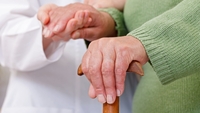Independent Guide to Care in North Wales
- Home
- Add Listing Care Homes
- Care Homes in Anglesey
- Care Homes in Conwy
- Care Homes in Denbighshire
- Care Homes in Flintshire
- Care Homes in Gwynedd
- Care Homes in Wrexham
- EMI - EMH Care Home Care
- Home Care in Anglesey
- Home Care in Conwy
- Home Care in Denbighshire
- Home Care in Flintshire
- Home Care in Gwynedd
- Home Care in Wrexham
- Other Products and Services
- Products and Services
- Rehab Services
- Links
- Blog
Quick Search
 Are you concerned about your ageing loved one? If so, respite care in North Wales may be the perfect solution for you and your family. Home care wales is a great way to provide your loved one with the extra support they may need. But how do you know when it's time to seek out respite care? This blog post will discuss five signs your loved one may need respite care. By being aware of these signs, you can make sure your ageing loved one is receiving the best care possible. 1) Appetite changes When it comes to our ageing loved ones, one of the most common signs that they may need help is changes in their appetite. If your loved one is suddenly eating much less than usual or refusing to eat altogether, it could be an indication that something else is wrong. If your loved one is losing weight rapidly or has lost a lot of weight over time, this could be an indicator of something more serious. Other indicators that something might be wrong include a decrease in energy levels, changes in sleep patterns, and general apathy. If you notice any of these changes, it’s important to talk to your loved one and make sure they are getting the nutrition they need. Additionally, if you’re noticing that your loved one is forgetting to take their medication or taking too much medication, this could also be a sign that they need additional help. 2) Difficulty with activities of daily living As we age, our ability to care for ourselves can decline. This can manifest in difficulty with activities of daily living. These activities can include the ability to take medications correctly, maintain a regular eating schedule, and even complete basic tasks such as grooming, bathing and dressing. If you notice that your loved one is having difficulty with these activities, it may be time to intervene. You should consider providing extra support or finding respite care so that your loved one can get the help they need. If your loved one is resistant to receiving help, try to remember that it is not always easy for us to accept help, especially as we age. Be understanding and let them know that you are there to help them in any way possible. 3) Isolation and withdrawal Social interaction is an important part of life and when an elderly loved one begins to withdraw from social activities and family gatherings, it can be a sign that something is wrong. If your elderly loved one is often isolated or withdrawing from social activities and family gatherings, they may be struggling with cognitive issues or depression. It is important to recognize this behaviour as a warning sign that your loved one may need a helping hand. It is also important to look out for changes in communication. If your elderly loved one is speaking less or having difficulty communicating their needs, this could be a sign of dementia or other health issues. 4) Dishevelled appearance If you notice that your loved one’s appearance is unkempt, it could be an indication that they need more assistance. Neglecting basic hygiene and grooming habits can happen when a person is overwhelmed or unable to care for themselves. You may notice their clothing is dirty or wrinkled, their hair is unbrushed or uncombed, or their nails are long and untrimmed. It can be hard to tell the difference between a phase of disorganisation and something that needs further attention, so take note if the state of their appearance is getting worse over time. If your loved one is having difficulty taking care of their personal hygiene, it might be necessary to hire a professional caregiver or enlist the help of family and friends. You should also consider asking your loved one to see their doctor if any medical problems could be causing or contributing to the issue. 5) Unexplained bruises or cuts If you’ve noticed that your loved one has unexplained bruises or cuts, this could be a sign of a potential medical issue or even abuse. Bruises can result from a medical condition or medication, and cuts may be a result of poor vision or coordination. If the bruising and cuts appear to be accidental or look like they could be self-inflicted, take note of when and where the bruising or cuts occur. You can then discuss these issues with your loved one’s doctor to ensure that appropriate care is provided. Conclusion It can be difficult to know when your loved one may need a helping hand. But it is important to recognize the signs so that you can take action. Look for changes in appetite, difficulty with activities of daily living, isolation and withdrawal, a dishevelled appearance, and unexplained bruises or cuts. If any of these signs are present, it may be time to consider respite care for your loved one. Respite care offers temporary relief from the stresses of caring for an elderly family member, while providing professional assistance and attention to help ensure their safety and wellbeing. |
Archives
September 2023
August 2023
July 2023
June 2023
May 2023
March 2023
February 2023
December 2022
November 2022
August 2022
July 2022
May 2022
April 2022
September 2021
December 2020
November 2020
October 2020
September 2020
May 2020
May 2018
September 2017
August 2017
June 2017
May 2017
March 2017
January 2017
September 2016
April 2016
March 2016
September 2015
June 2015
September 2014
February 2014
December 2013
August 2013
October 2012
June 2012
Other Sites In The "North West and Wales" Network
North Wales Online Community
Chartered Accountants North West and Wales

